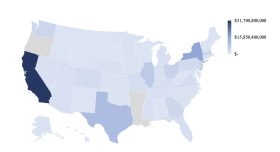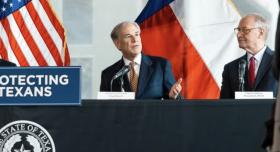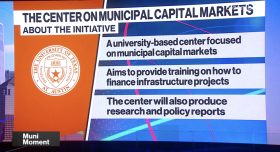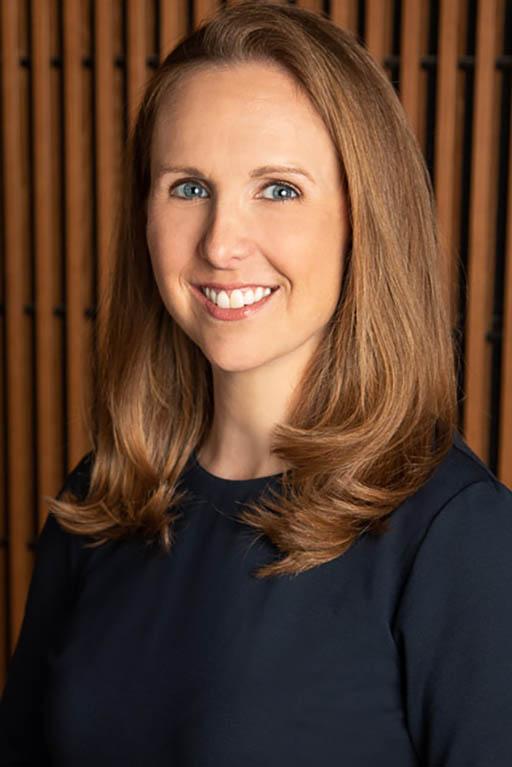Center on Municipal Capital Markets
Quality of life in any community depends on things we often overlook: safe schools, reliable hospitals, clean water and roads and bridges that actually work. None of this happens without public financing. Municipal bonds and other capital finance instruments make it possible — quietly shaping the strength, safety and resilience of daily life in the neighborhoods we call home.
The Center on Municipal Capital Markets (CMCM) at the Lyndon B. Johnson School of Public Affairs at UT Austin advances expertise in municipal finance at a time when infrastructure needs are rapidly growing. CMCM provides specialized education and training for students, government finance professionals, the municipal bond industry and the public. Through undergraduate and graduate programs, hands-on training, applied research and outreach, the center enhances knowledge of the municipal capital markets and supports both emerging and experienced public finance professionals.
“From sewers to schools to hospitals, municipal bonds are how communities finance critical infrastructure,” said Martin Luby, director of CMCM. “Understanding how these financial markets work is essential for ensuring communities can continue to build and maintain the services people rely on every day.”
This expertise is especially critical in Texas, where population and economic growth are driving demand for education, healthcare, transportation and energy production. Severe weather events add further pressure, underscoring the need for resilient infrastructure. Meanwhile, advances in artificial intelligence are transforming how municipalities and lenders make decisions — from assessing credit quality and liquidity to improving the efficiency of infrastructure planning and financing.
The municipal capital markets enable government entities to raise the resources needed for essential projects — schools, highways, transit systems, hospitals, water systems, wastewater treatment and energy infrastructure — and remain the cornerstone for ensuring a continued flow of capital for U.S. public infrastructure.
“Developing the next generation of professionals and advancing research and dialogue on the municipal capital markets is especially salient given the huge infrastructure needs we have in the United States.”
- Martin Luby, Director

"I applaud CMCM’s dual mandate of teaching undergraduate and graduate students about the critical role of the municipal securities market in financing this nation’s public infrastructure, as well as empowering government finance professionals with a greater understanding of the capital markets through continuing education, training opportunities and academic research."
-- Mark Kim, CEO of the Municipal Securities Rulemaking Board

"The best decision I made as an LBJ student. The program's curriculum gave me broad exposure to the fundamentals of public finance while also allowing me to hone my knowledge in the more specialized areas of governmental accounting, financial statement analysis, and the municipal securities industry."
-- Taylor Lewis (MPAff '20)
What We Do
CMCM addresses the need for specialized training in leveraging government resources for infrastructure development by:
Educating students and professionals through graduate courses, certificates and continuing education programs
Training future leaders with hands-on experience in municipal finance and infrastructure development
Researching market trends and policy issues that affect how governments pay for schools, hospitals, roads and utilities
Advising policymakers and the public on best practices for financing resilient, cost-effective infrastructure
Innovating through interdisciplinary and industry engagement and using data and AI to improve decision-making and increase efficiency to ensure a continued flow of capital for critical U.S. public infrastructure.
Dean's Certificate in State and Local Finance
State and local governments in the United States are often the primary providers of public goods and services to citizens, funded through myriad government revenues often with the aid of financing from the capital markets. The increased demand for government services combined with the continued reluctance of the public to substantially provide greater resources have challenged these governments' finances. As a result, many state and local governments have turned to novel fiscal policies, emerging financial instruments and/or alternatives to public provision of their traditional activities. The changing nature in the way governments finance and provide their goods and services necessitates better financial acumen among both government finance professionals and private and nonprofit sector specialists that interact, assist and participate in government fiscal and financing activities.
The state and local finance profession has historically suffered a supply/demand problem. That is, there has consistently been a shortage of people with the requisite budgeting/finance/accounting skills to satisfy demand from public, private and non-profit employers. This supply/demand problem results in students who possess these skills to be highly marketable professionals. The jobs that require the skills acquired in this certificate program span all three sectors (public, private and nonprofit) and all three government levels (federal, state and local).
The Certificate in State and Local Finance is open to any degree-seeking graduate student at UT-Austin interested in government finance. It will be especially attractive to LBJ MPAff students as well as dual degree MPAff students enrolled in UT's business, community and regional planning, law and engineering schools. By completing this certificate program, all students will be able to:
- Understand core public finance issues related to the way governments spend, raise and leverage taxpayer resources
- Interpret and evaluate basic financial documents to begin assessing the financial condition of state and local governments
- Evaluate the ways state and local governments access the capital markets to meet their infrastructure and operating budget demands
- Create a specific project finance plan to address a government's capital or operating needs
- Analyze how urban economies work and the impact of various policy interventions at the local level
- Assess rationales for public sector policies and actions to promote local economic development
More:

News & Events
News
Who We Are

Martin Luby
Director & Founder
Martin J. Luby’s teaching and research broadly focus on public finance, with an emphasis on public financial management. Much of his research has focused on the municipal securities market and the use of debt finance by state and local governments. He has published on innovative government financial instruments, federal financing techniques, regulation of the municipal securities market, and the role of financial intermediaries in state and local government financings. Marty has extensive banking, consulting, and advisory experience with many state and local governments, as well as the federal government. Marty is a fellow of the Lynn F. Anderson Professorship in Public Financial Management.

Tripp Kaiser
Executive Director
tripp.kaiser@austin.utexas.edu
Tripp Kaiser’s work focuses on municipal capital markets, public finance, and the intersection of financial markets and public-sector decision-making. As executive director of the Center on Municipal Capital Markets, he leads the center’s strategic vision, advances curricular offerings across degree levels, and fosters partnerships with public- and private-sector organizations, while serving as a resource to policymakers, faculty, and the municipal finance industry. Tripp's professional experience includes senior roles at Municipal Market Analytics, Bloomberg, JP Morgan, and Dillon Read Capital Management. Beginning in 2027, Tripp will also develop and teach public finance courses at LBJ. He holds a BBA from The George Washington University and is a Chartered Financial Analyst®.
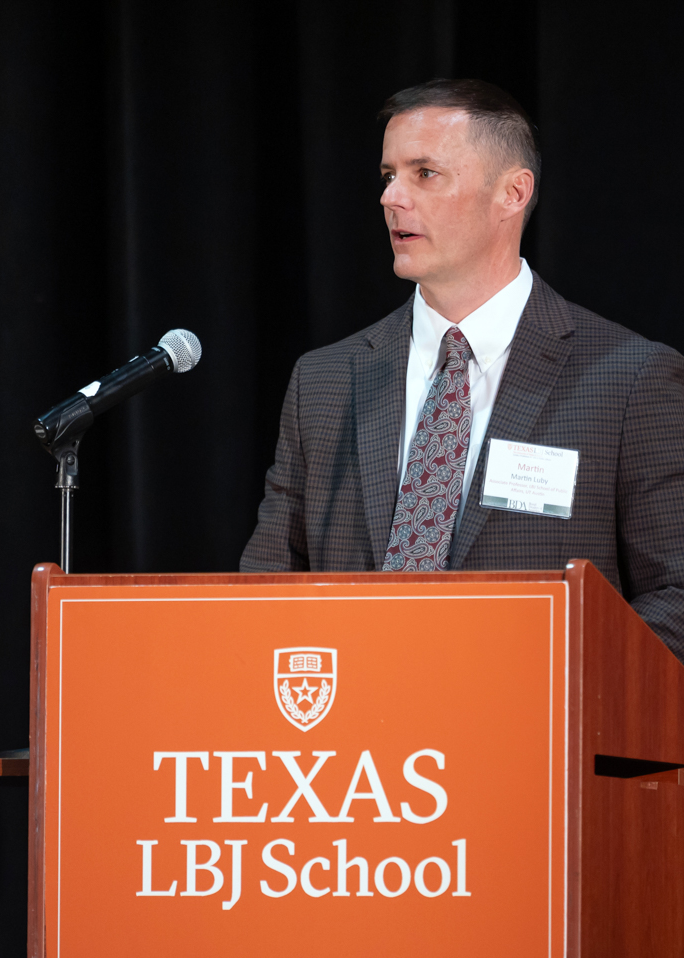
Faculty Fellows
Government Finance Rotational Fellowship Program
The Government Finance Rotational Fellowship (GFRF) is a paid, 30-week program that introduces students to careers in public finance through three hands-on rotations. Fellows gain technical skills, build professional networks, and fulfill the LBJ internship requirement, all while working with partners like city budget offices, statewide organizations, credit rating agencies, investment banks, municipal advisors, investment managers and more.
Meet our 2025 -2026 Fellows

Annie Burke (MPAff '26)
Annie Burke graduated from Rhodes College in 2021 with a B.A. in Anthropology and Sociology and minor in Gender and Sexuality Studies. Her interests include tax policy, capital budgeting, and debt financing. Before the LBJ School, she worked as a grant writer and fundraiser for an urban forestry nonprofit in Austin.

Olivia Green (MPAff '26)
Olivia Green holds a bachelor’s degree in History and American Studies from UT Austin. Her research interests are on labor, housing and finance, with a particular focus on how public policy can better serve underrepresented communities. She recently completed a summer internship with the Office of Budget and Planning at the University of Texas System, where she supported strategic fiscal planning through the development and documentation of training materials. She has also worked with Texas Rural Funders to advance philanthropy and build capacity for rural communities across the state. Olivia is passionate about using policy as a tool for equity and long-term impact.

Lela Lerner (MPAff '26)
Lela Lerner has a BA in Political Science from Lehigh University. Originally from Philadelphia, PA, moving to TX without a car helped Lela realize her passion for transportation—specifically rail, transit and financing capital projects. Outside of LBJ, she serves in advisory roles with local nonprofits Downtown Austin Alliance and Transit Forward, sharing her perspective as a student and transit-user to shape mobility goals. Lela has worked in the legislative, lobbying, and legal fields—most recently in the Texas Senate during the 89th Legislative Session.

Emily Mathers (MPAff '26)
Emily Mathers holds a B.S. in Nutrition and Dietetics from New York University and has experience advancing equity through public health, program design and strategic resource management. Emily has supported large-scale food access and nutrition initiatives at the NYC Department of Health and Mental Hygiene, the Central Texas Food Bank and Brighter Bites. She is interested in how both public and private sector tools, from budgeting and policy to philanthropy and cross-sector partnerships, can be leveraged to improve outcomes in health, education and community development.
Daniel Moreno (MPAff '25)
Daniel Moreno earned his B.A. in Chicano Studies from the University of California, Berkeley, where he was a Ronald E. McNair Scholar. Daniel’s research focuses on the intersection of labor rights, criminal legal reform and public finance. Before attending graduate school, he worked as a community organizer in the San Francisco Bay Area and as a client advocate in the Public Defender’s Office in Houston, providing holistic support to individuals navigating the criminal legal system. Daniel now serves as the Political Manager at Worker Defense, where he leads civic engagement and policy campaigns aimed at improving working conditions for low-wage communities. Daniel is passionate about using public finance tools to advance equity and economic resilience in historically marginalized communities.
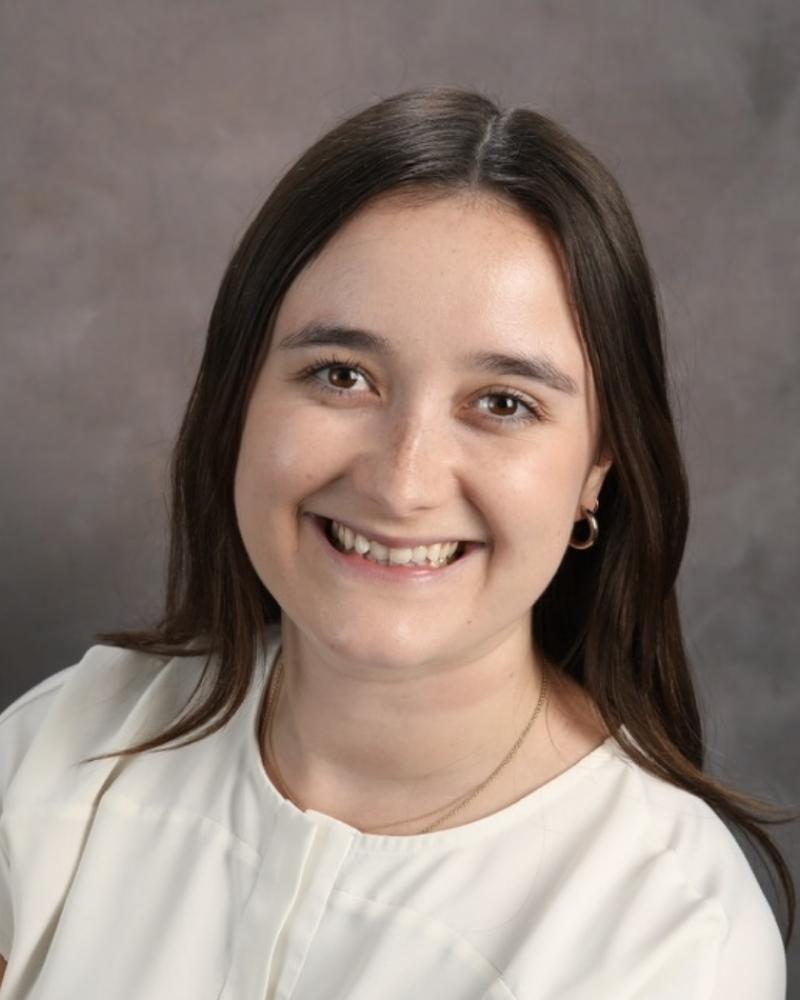
Marion Murphy (MPAff '26)
Marion Murphy received a bachelor’s degree in Art History from Washington University in St. Louis in 2021, with minors in Political Science and English. Following WashU, Marion joined Booz Allen Hamilton as a Senior Consultant in their Global Defense Group, supporting U.S. Navy and Marine Corps clients with contracts strategy and program management in San Diego. After her first year at LBJ, she interned with the Texas Juvenile Justice Department, supporting their Chief Strategy Officer and Communications team. Marion is specifically interested in public finance and strategic communications.





